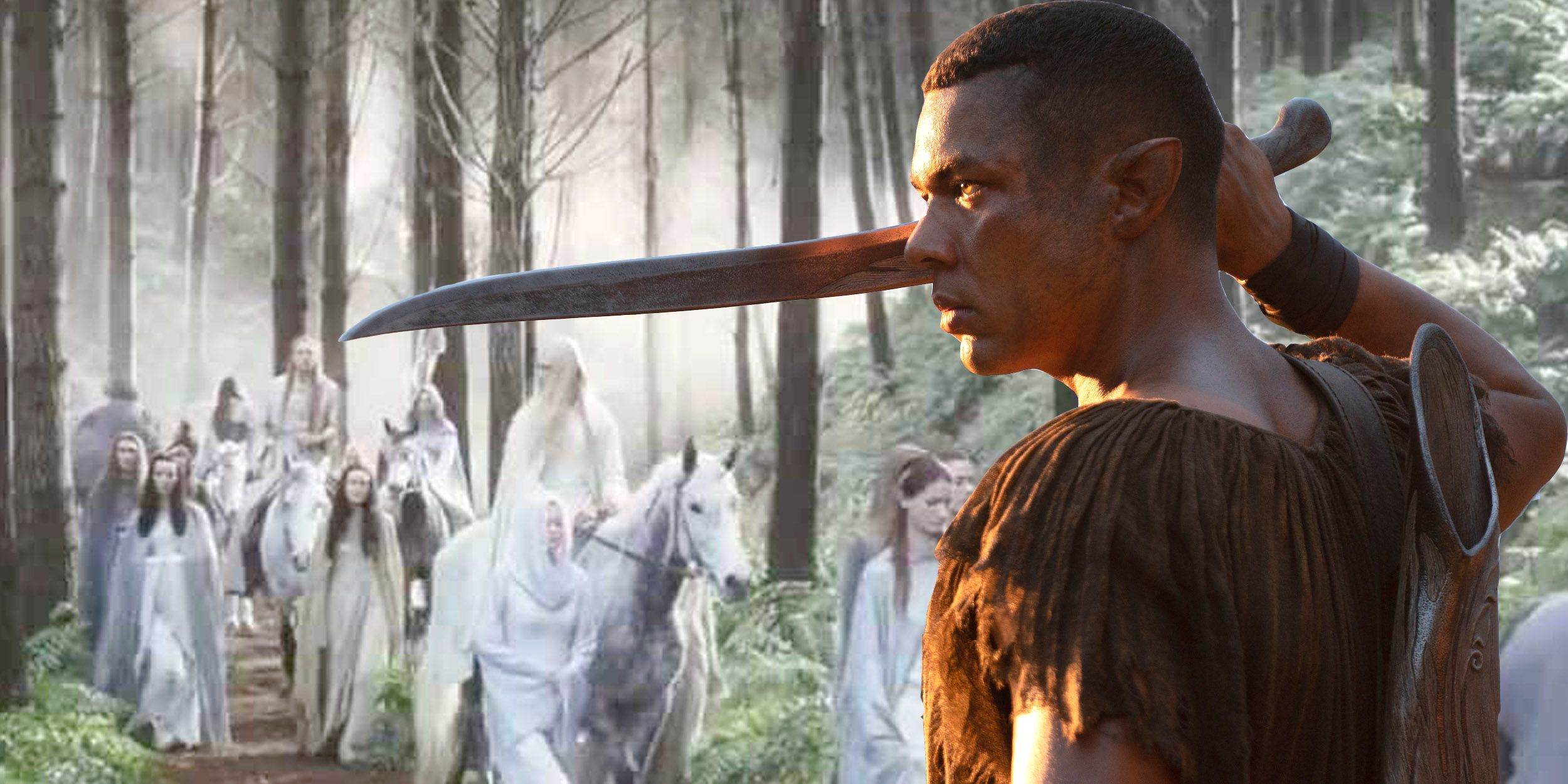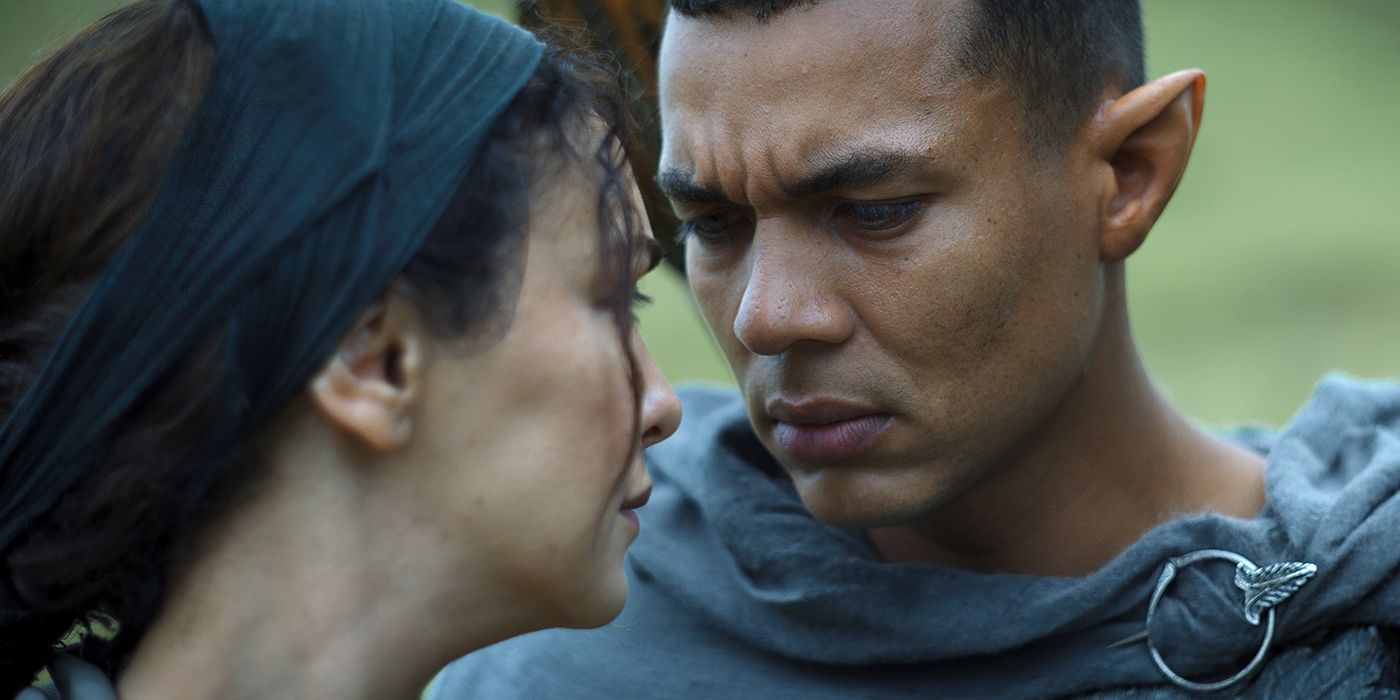
As such, The Rings of Power will introduce audiences to a new set of heroes and places than existing Tolkien-inspired works. One character has raised some hackles on portions of the internet: Arondir, a Silvan elf, played by Ismael Cruz Córdova. Arondir will form a relationship with Bronwyn (Nazanin Boniadi), a human healer.
Elves in Tolkien’s books are scattered throughout the fictional world outlined by The Silmarillion, driven apart by the decisions of their ancestors and continually broken into subgroups according to regions and which elves journeyed where during different migrations. Since they are all over the realm, it is clear that elves are not a homogenous race of beings, but overall, potentially a more diverse group than the specific tribes seen in previous adaptations. While there are not any Black elves in the Lord of the Rings books or films, nothing about Tolkien’s source material explicitly precludes a Black elf from existing.
The Rings Of Power’s Arondir Backlash Is Absurd

Córdova, also known for playing Mando on Sesame Street, is an actor from Puerto Rico who is Black and Latino. Early images of him in trailers and promotional materials brought out some hand-wringing and complaints about an Elf being played by a person of color. Much of the backlash equates Arondir with Hollywood’s history of changing the race or gender of major characters. This simply is not the case here, as Arondir is a new character, who happens to be played by a Black actor. Elvish characters in the original Lord of the Rings books are described as being fair-skinned, but none of the language used definitively states that elves were only fair-skinned beings.
Considering how vast the world is that Tolkien created, there are endless possibilities for new stories and characters that could inhabit his realm. The opportunity to make Tolkien’s Middle earth slightly more inclusive is going to help build stronger stories and a stronger fanbase. The original stories of The Hobbit and The Lord of the Rings are epic tales of people of different races — Dwarves, Elves, humans, and Hobbits — uniting to fight the forces of evil to save all inhabitants of Middle-earth. While Tolkien’s books were written for a European audience and primarily depicted a realm that reflected that, today’s adaptation is being immediately presented to more inclusive, global viewers. Having a few diverse characters in The Rings of Power seems like the bare minimum.


